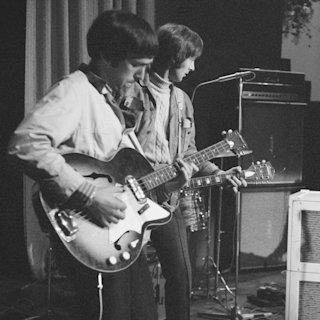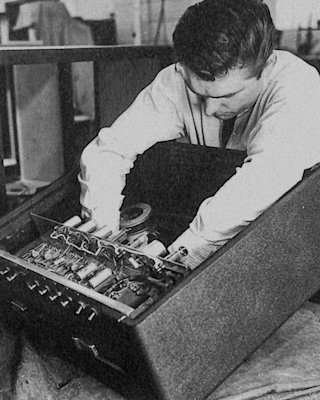1964: The Mods and the Rockers battle on Brighton beach
PUBLISHED: 9 MAY 2022
READ TIME: 5 MINS
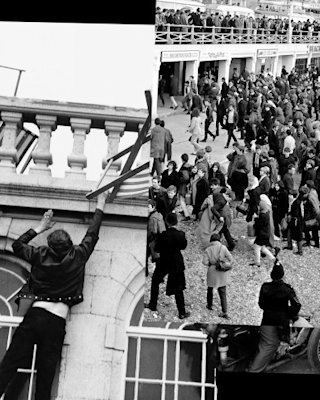
Mods and rockers cause a disturbance in Brighton, A group of rockers pose with bike, leathers and chains.
It’s easy to think of the mods and the rockers as delinquents who angrily chased each other about Brighton Beach. But their sensationalist media portrayal around 1964 (later immortalised in the 1979 film ‘Quadrophenia’) barely scratched the surface of what these two subcultures represented.
In the ‘60s, the mods – in green parka jackets purchased in Soho’s Carnaby Street – were whizzing around London on Vespa and Lambretta scooters, soon-to-be humming anthems by The Who and The Yardbirds. Their rivals, the rockers, were Johnny Kidd and Billy Fury devotees with black leather jackets, who congregated at the infamous Chelsea Bridge Tea Stall on the Thames. Their violent clashes have been well-documented. But these groups also gave a voice to working-class culture:
Mods and rockers clash on Hastings seafront on August 1964.
IN THE SHADOW OF WORLD WAR TWO, ROCK ‘N’ ROLL COULD PROVIDE SANCTUARY IN A COUNTRY WHERE OPPORTUNITIES WERE STILL SCARCE FOR YOUNG PEOPLE.
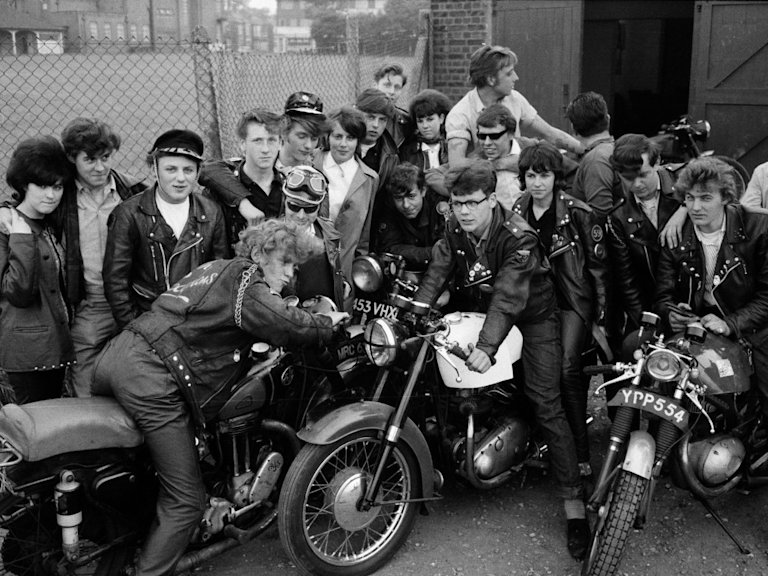
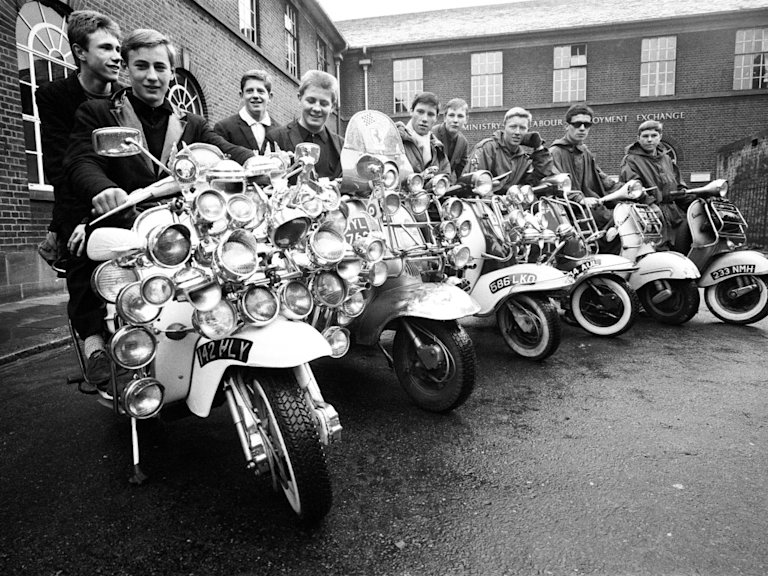
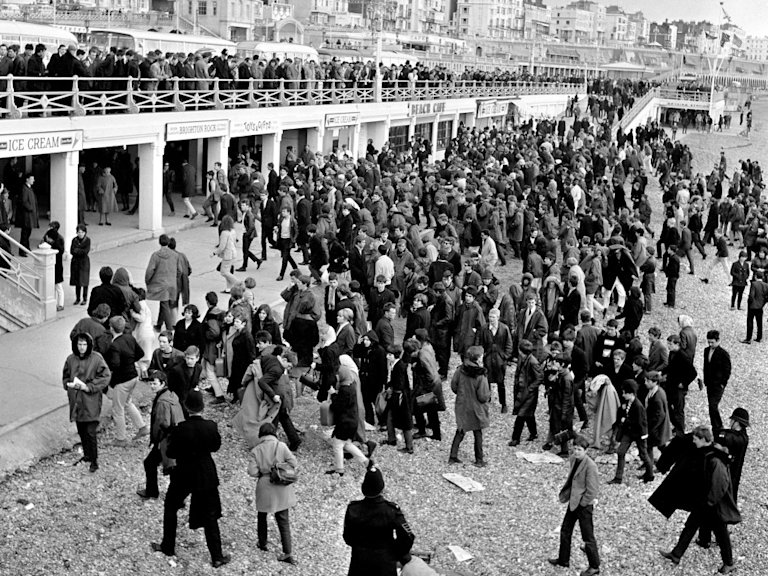
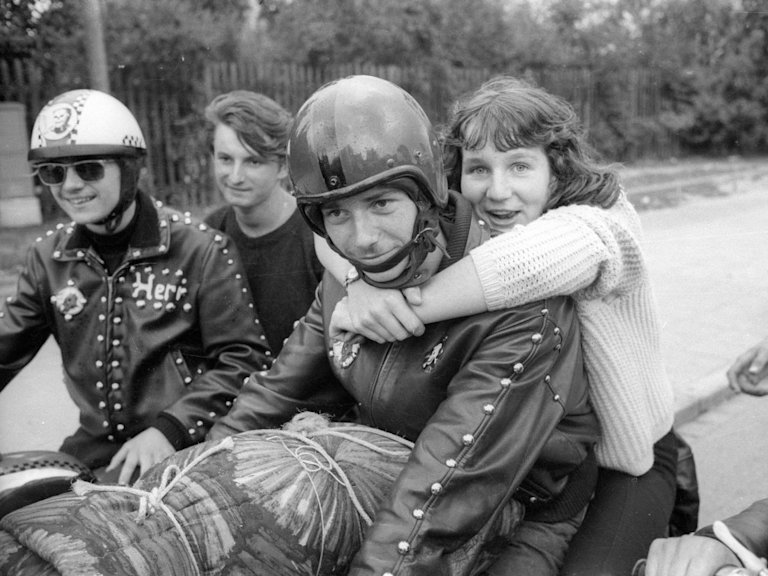
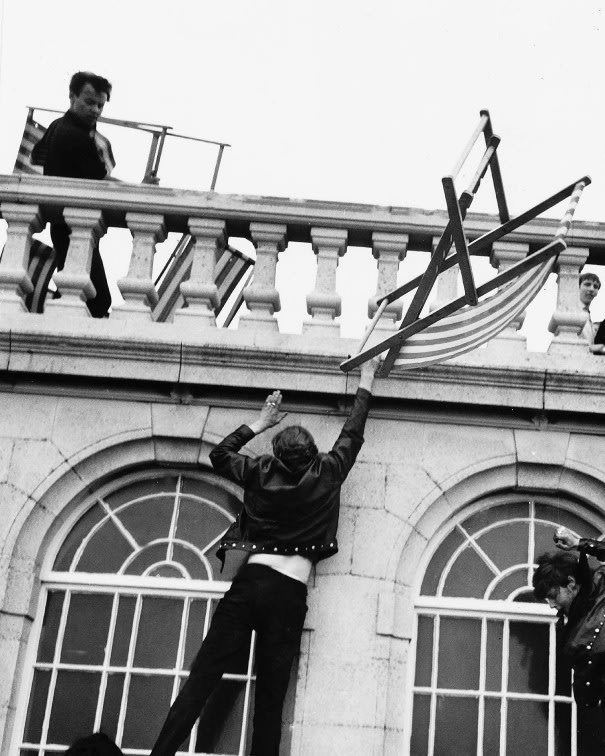



It was arguably the mods and the rockers who sparked the ‘British Invasion’ of the US by UK bands in the years thereafter. After all, The Beatles – who spearheaded the assault – had modelled themselves on both subcultures at various points in their early career. They’d switched from leather jackets to mod suits in the early ‘60s, leading drummer Ringo Starr to humorously claim in 1964 that he was, in fact, a “mocker”. The rival subcultures’ confrontational attitudes would then go on to light the fuel for acts like The Clash and The Sex Pistols a decade later.
In fact, they were the crux of a symbolic, tribal identification so strong that it has left an indelible mark on society to this day. A devout global following endures.
WHAT THESE TWO WARRING FACTIONS ULTIMATELY SHOWED, THOUGH, WAS THAT THE CLOTHES YOUNG PEOPLE WORE AND THE SONGS THEY LISTENED TO WENT FAR DEEPER THAN THEIR PARENTS PERCEIVED.

Two rockers pose on Chelsea Bridge, London.
